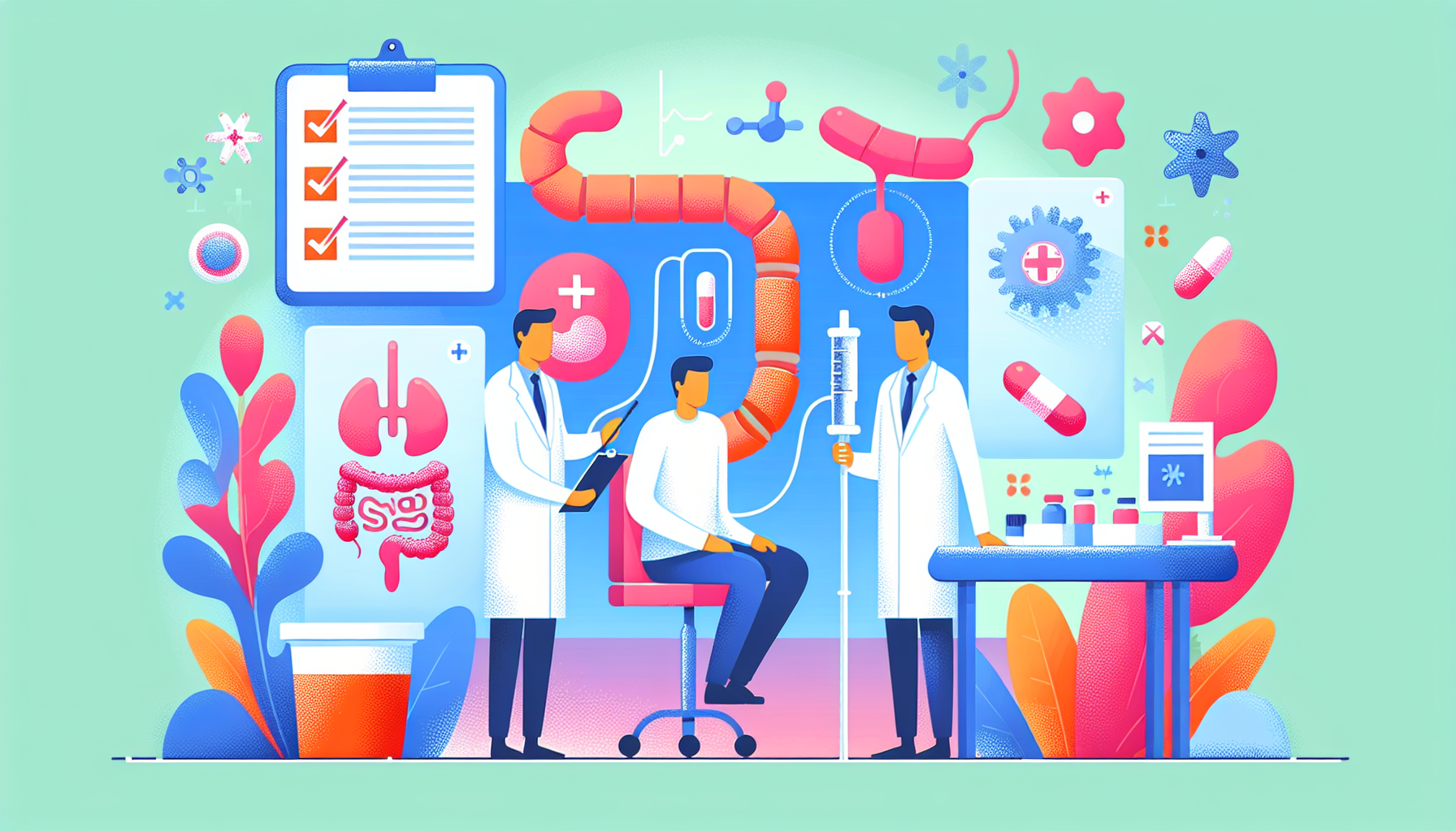Vaginal Dryness During Menopause
Meta Description: Understand why vaginal dryness during menopause occurs and explore effective treatments, from moisturizing therapies to low-dose estrogen and laser [...]
Read More
Medically reviewed by Oghenefejiro Okifo | MD, Harvard Medical School | Henry Ford Hospital - Detroit, MI on July 28th, 2023.
Helicobacter pylori infects approximately 60% of the world's population, yet 80-85% of infected individuals never develop symptoms or complications.
The bacteria uniquely survives stomach acid by producing urease enzyme, which creates an alkaline buffer allowing it to burrow into the protective mucus lining.
Diagnosis typically involves urea breath tests (95% accurate), stool antigen tests, or upper endoscopy with biopsy for patients with alarm symptoms like bleeding.
Standard triple therapy combines two antibiotics (amoxicillin 1000mg + clarithromycin 500mg) with a proton pump inhibitor twice daily for 10-14 days, achieving 85-90% eradication rates.
Untreated infection increases stomach cancer risk 6-fold and causes 90% of duodenal ulcers, making treatment essential even in asymptomatic patients with confirmed infection.
Helicobacter pylori (H. pylori) is a type of bacteria that infects the stomach and can cause various digestive issues. While many people with H. pylori don't experience any symptoms, the infection can lead to the development of painful stomach ulcers and, in rare cases, stomach cancer.

H. pylori is typically spread from person to person through contact with infected saliva or other body fluids. The bacteria can also be transmitted through contaminated food, water, or utensils. Risk factors for H. pylori infection include:
Crowded living conditions
Lack of clean water and proper sanitation
Living with someone who is infected
Living in a developing country
Most people with H. pylori don't experience any symptoms. However, if the infection leads to stomach inflammation (gastritis) or peptic ulcers, you may notice:
Dull or burning pain in the stomach
Bloating and burping
Loss of appetite
Nausea and vomiting
Unexplained weight loss
In severe cases, peptic ulcers caused by H. pylori can bleed into the stomach or intestines, leading to symptoms like bloody or black stools, trouble breathing, dizziness, and sharp stomach pain. If you experience any of these symptoms, seek medical attention immediately.
To diagnose an H. pylori infection, your doctor may recommend one or more of the following tests:
Stool antigen tests to detect H. pylori proteins in your stool
Urea breath test to measure the presence of H. pylori in your gut
Upper gastrointestinal endoscopy to examine your stomach and collect tissue samples
Imaging tests like upper GI X-rays or CT scans to assess the condition of your stomach
H. pylori infections are typically treated with a combination of antibiotics and proton pump inhibitors (PPIs). Common treatment regimens include:
Triple therapy: A combination of two antibiotics and a PPI taken for 14 days
Bismuth subsalicylate: An over-the-counter medication that helps protect the stomach lining
Histamine (H-2) blockers: Medications that reduce stomach acid production, used when PPIs are not an option
Most stomach ulcers caused by H. pylori will heal within a few weeks of starting treatment. Your doctor may recommend a follow-up test to ensure the infection has been successfully eradicated.
To reduce your risk of contracting an H. pylori infection, practice good hygiene habits:
Wash your hands thoroughly after using the bathroom and before preparing or eating food
Avoid consuming undercooked food or untreated water
Ensure food handlers maintain proper hand hygiene
Additionally, some studies suggest that a diet rich in fresh fruits, vegetables, whole grains, nuts, and seeds may help protect against H. pylori infections.
H. pylori is a common bacterial infection that can cause stomach ulcers and increase the risk of stomach cancer. While many people with H. pylori don't experience symptoms, it's essential to seek medical attention if you suspect an infection. Treatment typically involves a combination of antibiotics and proton pump inhibitors, and most ulcers caused by H. pylori will heal within a few weeks. Practicing good hygiene habits and maintaining a healthy diet may help prevent H. pylori infections.
For more information on H. pylori and digestive health, visit:
Most people with H. pylori never know they have it, but the infection significantly increases risks for ulcers and stomach cancer, making antibiotic treatment highly recommended when detected. A simple 2-week treatment course eliminates the bacteria in 9 out of 10 patients. If you're experiencing persistent stomach pain or have concerns about H. pylori exposure, Doctronic can help you understand your symptoms and testing options.
Meta Description: Understand why vaginal dryness during menopause occurs and explore effective treatments, from moisturizing therapies to low-dose estrogen and laser [...]
Read MoreMeta Description: Discover why perimenopause causes itching and explore effective relief strategies, from hormone therapy to skincare tips, to soothe dry and itchy skin.When [...]
Read MoreMeta Description: Understand why weight gain during perimenopause occurs and learn how to manage it through protein intake, resistance training, and better sleep habits.Why [...]
Read More